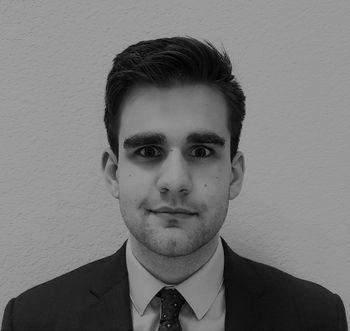Columbia president advocates softer China approach amid questions over foreign gifts
Columbia University's president asked Joe Biden to reduce surveillance of foreign nationals, specifically Chinese nationals.
The Ivy League president's statement comes amid reports that the school failed to disclose more than $1 million from the China for its Confucius Institute, which the school denies.
Columbia reported millions of dollars in contributions from China to the Department of Education in 2020.
The president of Columbia University is asking Joe Biden to end the monitoring of foreign-born students, especially those who are ethnically Chinese.
He characterized such monitoring as “paranoia.”
Columbia President Lee Bollinger issued the letter on December 3 as part of a broader statement asking Biden to “End the Trump Administration’s Assault on the International Exchange of Ideas.” In 2019, Bollinger wrote an op-ed in the Washington Post, warning that he would not “start spying” on foreign students.
[RELATED: Researcher lies about grant applications, uses funds to develop medicine for China]
Bollinger argued that the policy of enhanced security is unneeded. While colleges “have an obligation to comply with existing security protocols,” he argued that it was in “fierce conflict with First Amendment freedoms.”
That statement from Columbia University’s president came as the Ivy League school reportedly failed to disclose at least $1 million in Chinese government funding of its Confucius Institute, as required by federal law. A Columbia University spokesperson denied this allegation, telling Campus Reform, “the university’s disclosure of funding from foreign sources fully complies with federal requirements for reporting donations.”
The Washington Free Beacon cited a Chinese state media report from 2013, which stated that Hanban, the name of the Chinese Communist Party funded Confucius Institute headquarters, “began discussions to establish a Confucius Institute at Columbia in 2008.”
”In 2010,” the report from China Daily stated, “Hanban pledged Columbia $1 million to be distributed to the institute over five years to fund its research projects and Chinese culture events.”
However, a search of the Department of Education’s foreign gifts database, which includes foreign gifts of over $250,000 to American universities, yields no results of gifts from China between January 1, 2010 and December 31, 2015. The same foreign gifts database reveals that Columbia University has reported more than $17.3 million in gifts originating from China in 2020.
The Department of Education lists active investigations of U.S. universities into unreported foreign gifts on its website. Columbia does not appear on that list and an Education Department spokesperson told Campus Reform that “all active investigations involving Section 117 of the Higher Education Act have letters posted on our website, and we generally don’t comment beyond those letters.”
Columbia University is the only Ivy League school that still operates a Confucius Institute, which U.S. intelligence agencies have repeatedly said exist to espouse Chinese Communist Party “propaganda.”
Bollinger made specific reference to the Chinese government in his Washington Post op-ed, arguing that there were only “isolated incidents” of data theft.
The President of Columbia’s College Republicans, Crista Erales, disagrees with Bollinger.
[RELATED: College Board cuts China ties following Senatorial inquiry]
Erales argued that the incidents of data theft are “documented,” stating that Chinese citizens are under “intrusive surveillance” by their own government.
“There have been documented instances where information has been sent to China” and also pointed out that the Chinese government was an oppressive government which “violates human rights with no remorse.”
Specifically addressing the letter, Erales told Campus Reform that the premise that colleges have to choose between monitoring foreign nationals or attracting the brightest minds is false.
“President Bollinger seems to believe that we are dealing with two mutually exclusive decisions: either we monitor foreign nationals who work at schools or attract the world’s brightest minds. These two are by no means opposed to each other,” Erales said. “We can draw the most promising minds globally. We must also ensure that those brilliant minds are not using our citizens to strengthen regimes with principles anathema to our nation.”
Campus Reform has reported on multiple instances of U.S. college academics being arrested, indicted, and pleading guilty to federal charges related to their connections to China. For more China coverage, visit campusreform.org/China.
Follow the author of this article: John Hanson

